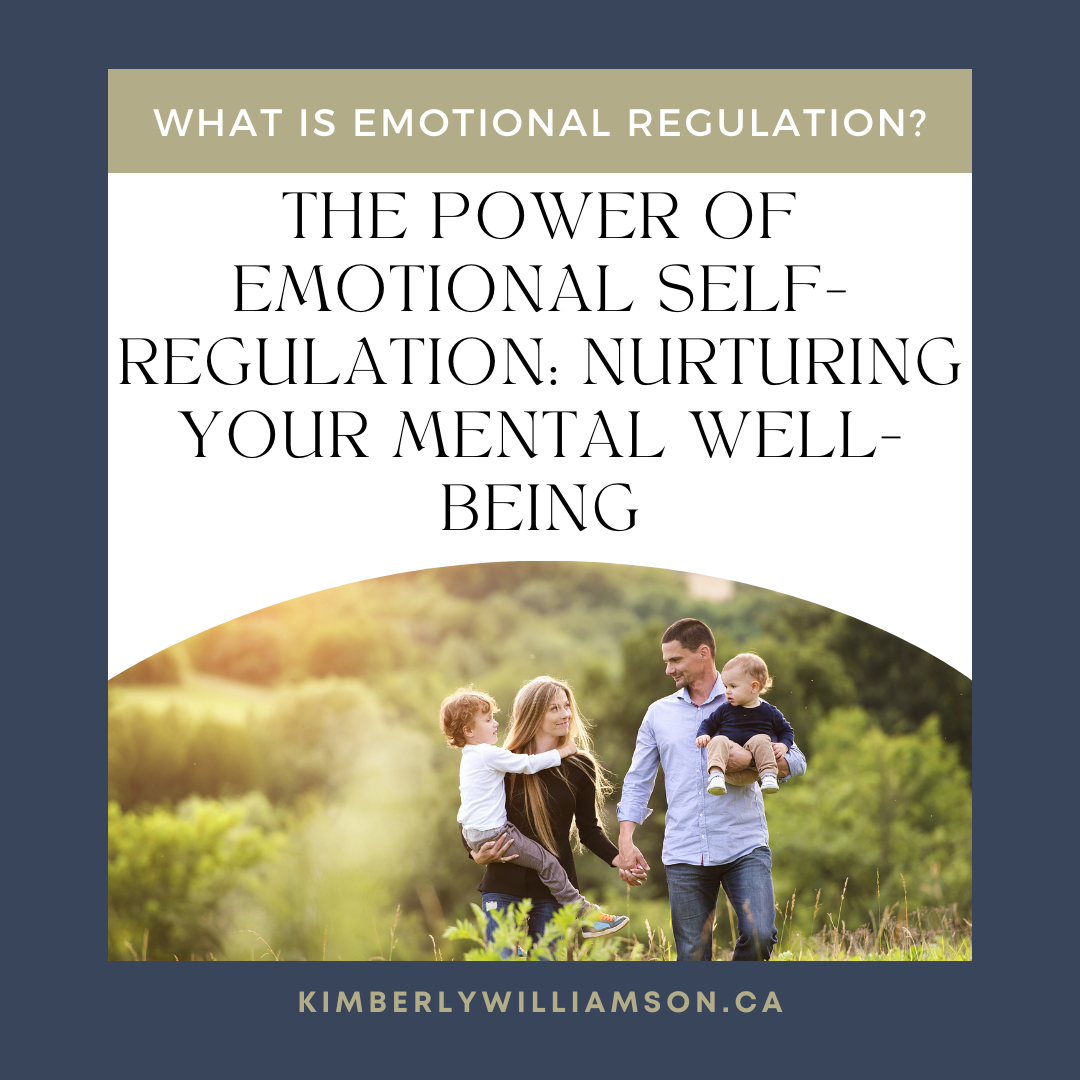The Power of Emotional Self-Regulation: Nurturing Your Mental Well-being
In our fast-paced and demanding world, emotional self-regulation has emerged as a crucial skill for maintaining good mental health. The ability to understand, manage, and respond to our emotions in a healthy manner is vital for personal growth, strong relationships, and overall well-being. In this blog post, we will delve into the concept of emotional self-regulation, highlight its importance, and explore how cultivating this skill can significantly enhance your mental health.
Common feelings people may experience if they are not emotionally regulated:
When individuals struggle with emotional dysregulation, their emotions can become overwhelming and difficult to manage.
Intense emotions:
Unregulated individuals may feel intense emotions that are difficult to control or contain. They may experience sudden shifts in mood, feeling overwhelmed by anger, sadness, anxiety, or frustration.
Feeling out of control:
Without emotional regulation, individuals may feel like their emotions are controlling them rather than the other way around. They may have difficulty managing impulsive reactions or impulsive behaviours driven by their emotions.
Vulnerability:
Emotionally dysregulated individuals may feel more vulnerable and sensitive to their environment. They may be easily triggered or have heightened sensitivity to perceived threats or criticism.
Instability:
The lack of emotional regulation can lead to emotional instability. Individuals may feel like they are on an emotional rollercoaster, with unpredictable ups and downs that can impact their overall well-being and relationships.
Disconnection:
Emotional dysregulation can create a sense of disconnection from oneself and others. Individuals may struggle to understand their own emotions, leading to a feeling of detachment from their own experiences. This can also impact their ability to connect and empathize with others.
Increased stress and anxiety:
Unregulated emotions can contribute to increased stress and anxiety levels. Individuals may constantly feel on edge, anticipating emotional outbursts or struggling to manage the demands of everyday life.
Low self-esteem:
Difficulties with emotional regulation can lead to negative self-perception and low self-esteem. Individuals may judge themselves harshly for their inability to control their emotions, leading to feelings of shame or self-doubt.
Relationship challenges:
Emotional dysregulation can strain relationships with family, friends, and colleagues. It can lead to conflicts, misunderstandings, and difficulty maintaining stable connections due to erratic emotional responses.
Understanding Emotional Self-Regulation:
Emotional self-regulation refers to the capacity to recognize, comprehend, and control one's emotions effectively. It involves being aware of our emotional state, understanding the underlying triggers and patterns, and responding in a constructive and adaptive manner. Instead of being overwhelmed or controlled by our emotions, emotional self-regulation empowers us to consciously navigate and channelize our feelings.
The Importance of Emotional Self-Regulation:
Emotional Resilience:
Emotional self-regulation enhances our resilience to face life's challenges. It allows us to bounce back from setbacks, adapt to change, and maintain a positive outlook even during difficult times.
Stress Management:
By regulating our emotions, we can mitigate the negative impact of stress on our mental and physical well-being. Emotional self-regulation helps us reduce excessive anxiety, prevent burnout, and cultivate a sense of calm and balance.
Improved Relationships:
When we are in control of our emotions, we can communicate more effectively and empathetically with others. Emotional self-regulation enables us to navigate conflicts, resolve disagreements, and build stronger, healthier relationships.
Enhanced Decision-Making:
Our emotions can influence our decision-making processes. Emotional self-regulation empowers us to make more rational and informed choices by minimizing impulsive or irrational reactions driven solely by intense emotions.
How Emotional Self-Regulation Improves Mental Health:
Increased Emotional Awareness:
Emotional self-regulation requires developing a deep understanding of our emotions. By becoming more aware of our feelings and their underlying causes, we can identify and address any emotional imbalances or triggers, leading to greater emotional stability.
Effective Stress Reduction:
Emotional self-regulation techniques such as deep breathing, mindfulness, and relaxation exercises can help manage stress and anxiety effectively. These practices promote a state of calm and relaxation, allowing us to regain control over our emotions.
Healthy Coping Mechanisms:
Emotional self-regulation encourages the use of healthy coping mechanisms to deal with emotional challenges. Instead of resorting to harmful habits like excessive drinking or avoidance, we can develop strategies such as seeking support from loved ones, engaging in physical activity, or pursuing creative outlets.
Improved Self-Confidence:
When we can regulate our emotions, we develop a sense of self-efficacy and confidence. The ability to navigate and manage our emotions empowers us to tackle life's obstacles with a positive mindset, ultimately boosting our self-esteem and overall mental well-being.
Tips to Cultivate Emotional Self-Regulation:
Mindfulness:
Practice being fully present in the moment, observing your thoughts and emotions without judgment. Mindfulness allows you to develop a greater understanding of your emotional experiences and respond to them consciously.
Identify Triggers:
Pay attention to situations, people, or thoughts that tend to trigger strong emotional responses. By recognizing these triggers, you can proactively prepare strategies to regulate your emotions when faced with them.
Emotion Labeling:
Give a name to the emotions you are experiencing. Verbalizing your emotions can help you gain clarity and create distance between yourself and the intense feelings, facilitating better regulation.
Seek Support:
Don't hesitate to reach out to trusted friends, family, or mental health professionals when you need support in regulating your emotions
It's important to note that emotional dysregulation can be a symptom of various mental health conditions, such as borderline personality disorder or bipolar disorder, or it can occur independently. Seeking professional help from therapists, counsellors, psychologists or mental health professionals can provide guidance and support in developing healthy emotional regulation strategies and improving overall well-being.
If you're looking for counselling support for emotional regulation in Olds, Alberta or Online in Alberta for you, your child or teen, feel free to contact us for a free 15 minute phone consultation. We’d be happy to hear about what is happening and answer any questions you might have.

